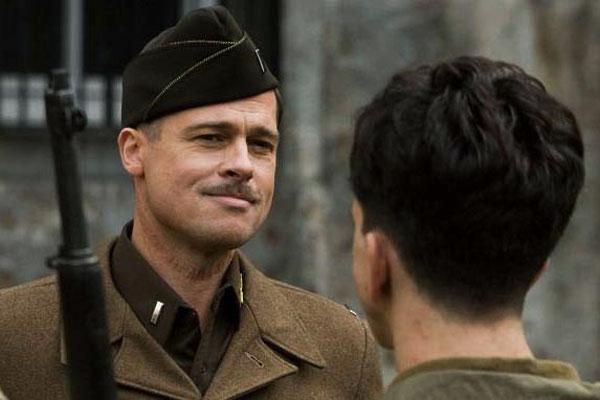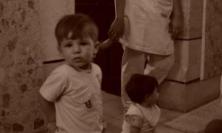Director: Quentin Tarentino
Starring: Brad Pitt, Diane Kruger, M?lanie Laurent, Christoph Waltz,Eli Roth, Michael Fassbender
UK Release date: 19 August 2009
Certificate: 18 (153 mins)
Where to start? With the clowns and killers that glide past each other and meet only in the brightest places, with glorious explosion and emotion following on from each other like punchlines clamouring to be said? In the adrenal thump of mad playground violence (and then he shot him in the head and then he stabbed him and then the other guy came in with the machine gun)? In the litterbox of references through which the critics and film students of the ever-after can sift to their delight? Wherever you start with Inglourious Basterds you end up in the heady world of Tarantino Land, which unless you have kept out of cinemas for the past decade, you know well enough. This time the plot calls up a Jewish revenge squad in Nazi-occupied France, led by a Tennessee hick with lynch marks round his neck and a beautiful cinema owner who finds herself hosting the Top Trumps of Nazi leadership in Paris.
History takes its leave early on. That self-conscious fictionality – the planned discrepancies, the dialogue that reels out the plot twists like a scriptwriter selling the idea to a producer – is one of those Tarantino tics that gets rolled out as exhibit A in defence of his genius. Add to this a parade of comicbook characters and by the end of the film we are left with something almost audacious in its complete abandonment of feasibility, let alone fact. Blondes are lethal, men are basterds, Nazis are rotten and insecure…to sustain this level of nonsense you need an irregular pulse of violence and diminishment – something that Tarantino has staked out for himself in those lengthy digressions about nothing in particular, and their interruptions by spectacular death. Inglourious Basterds doesn’t always succeed, partly because at two and a half hours it’s a physical drain to watch.
It’s also wish-fulfilment on an epic scale, the posterboy for all those reductionists who would claim art is nothing more than the satisfaction of the desires we don’t allow ourselves to satisfy in real life. Here the desire is that of revenge. Our protagonists are nothing more than the cool executers of our demands, their pasts wheeled out in big blocks of colour in a brief concession to psychological truth. The stimulus for the storyline seems to have been a question along the lines of: ‘Wouldn’t it be cool if at the end of the war the Nazis really got what was coming to them…’ To suggest that Inglourious Basterds raises the ‘issue’ of revenge would be dismissed as quickly by its director as by the audience who applauded its bizarre climax. Film here isn’t used as a medium for contemplation, but for stimulation of that part of us that cries out ‘me, me, me!’, and all the fantasies and daydreams that go along with that. It’s the esprit d’escalier writ large onto World War II. I prefixed the film with a pizza and a beer – that kind of evening, when you sit on the tube on the way home and imagine all the things you could say to the strangers on either side of you so they’d think you were witty and attractive and strong and courageous and really just like Brad Pitt, until someone does say something and you get frightened in case they thought you were staring. Somewhere in the midst of that miasma Inglourious Basterds has its home.
There’s an essay waiting to be written (or perhaps it already has been) about the outbreak of WWII films in the past year. The Reader, The Boy in the Striped Pyjamas, Valkyrie, Defiance…whether it’s the distance from the event or something in the air, filmmakers are returning to the war to plunder stories. It’s hard to imagine what else is left to use. Regardless of this, Inglourious Basterds has shouldered in to finish off the remains. The result is callous and thrilling.
Nathan Koblintz
![]() Visit this film's official web site
Visit this film's official web site






